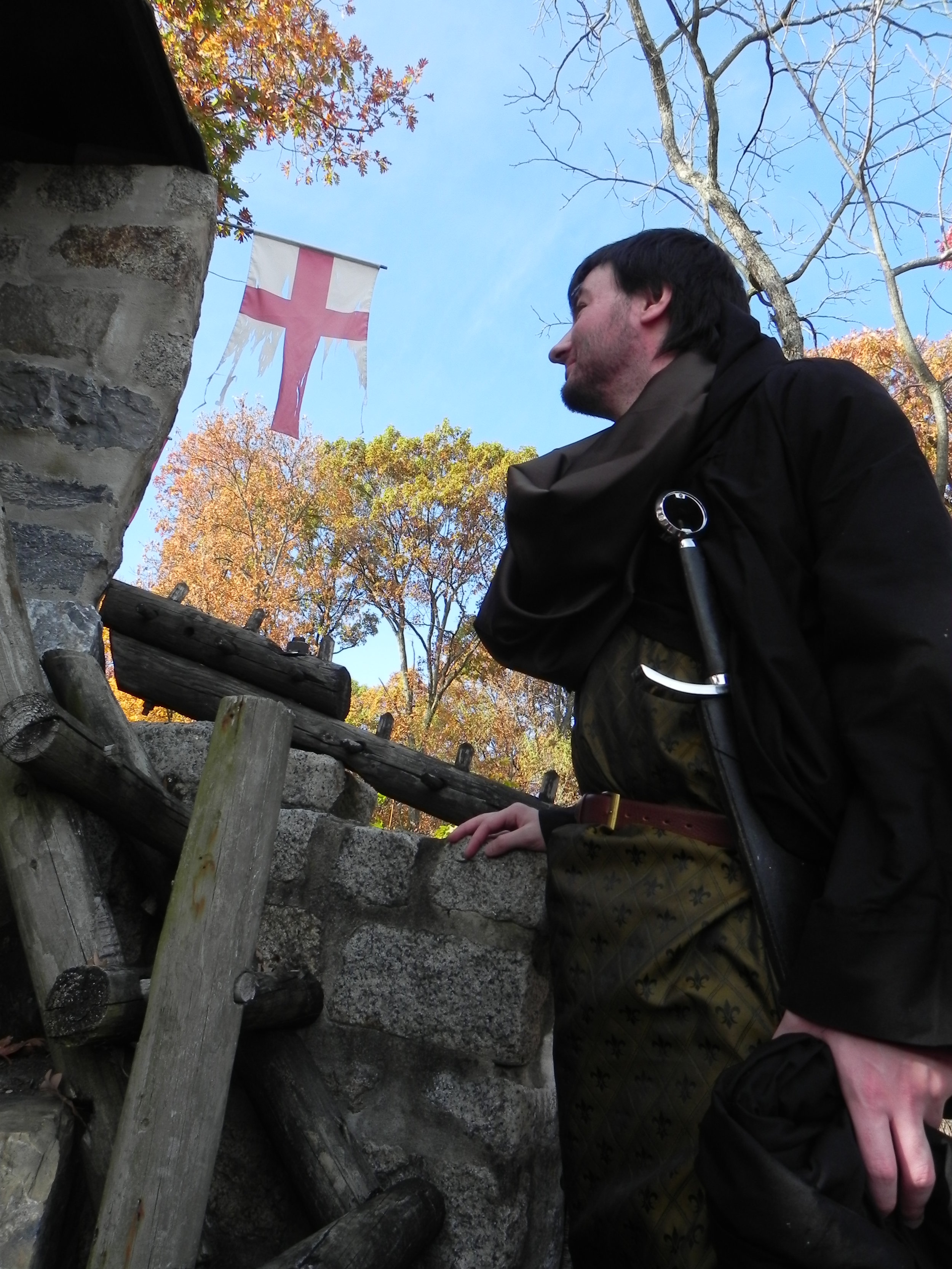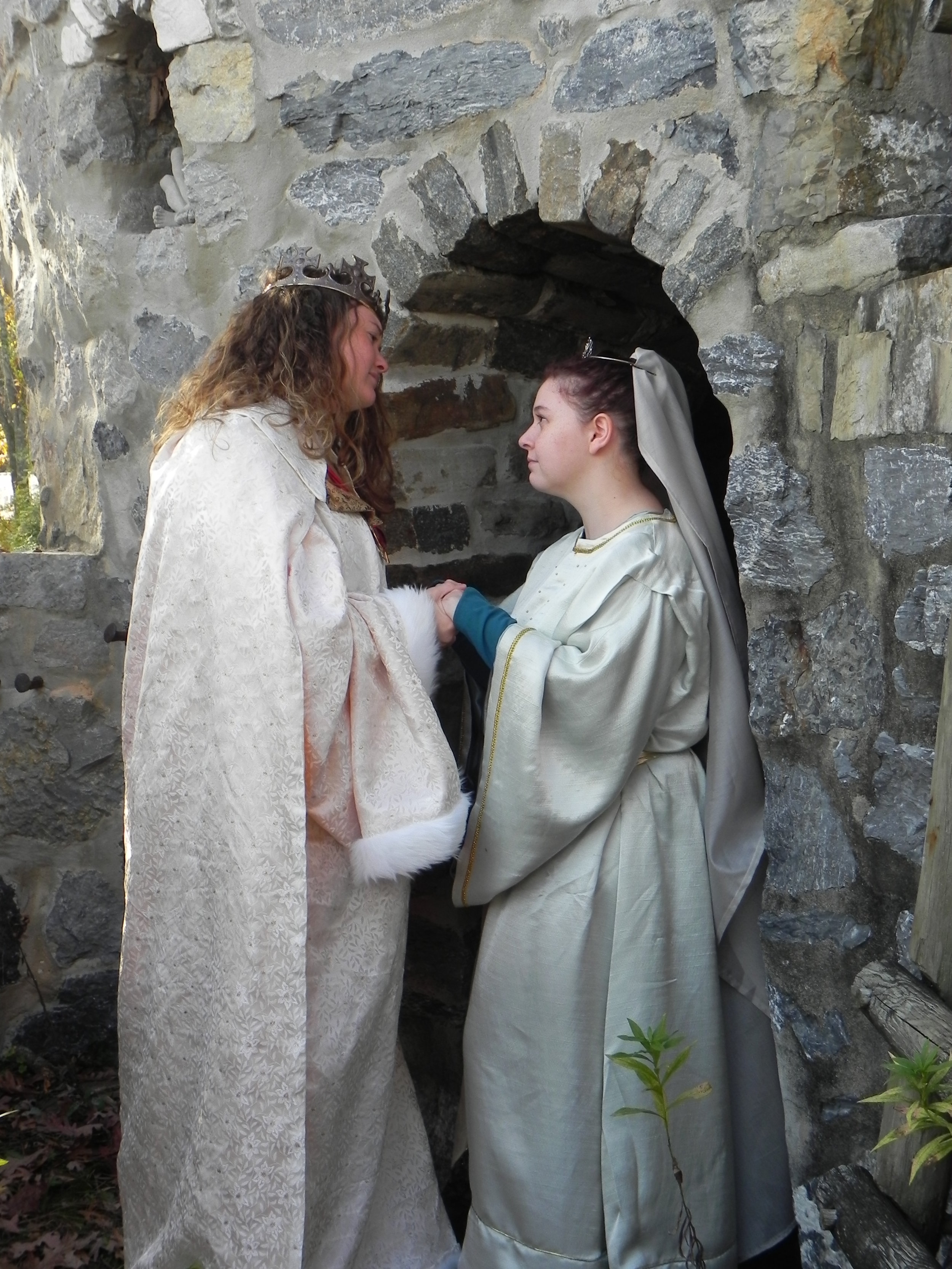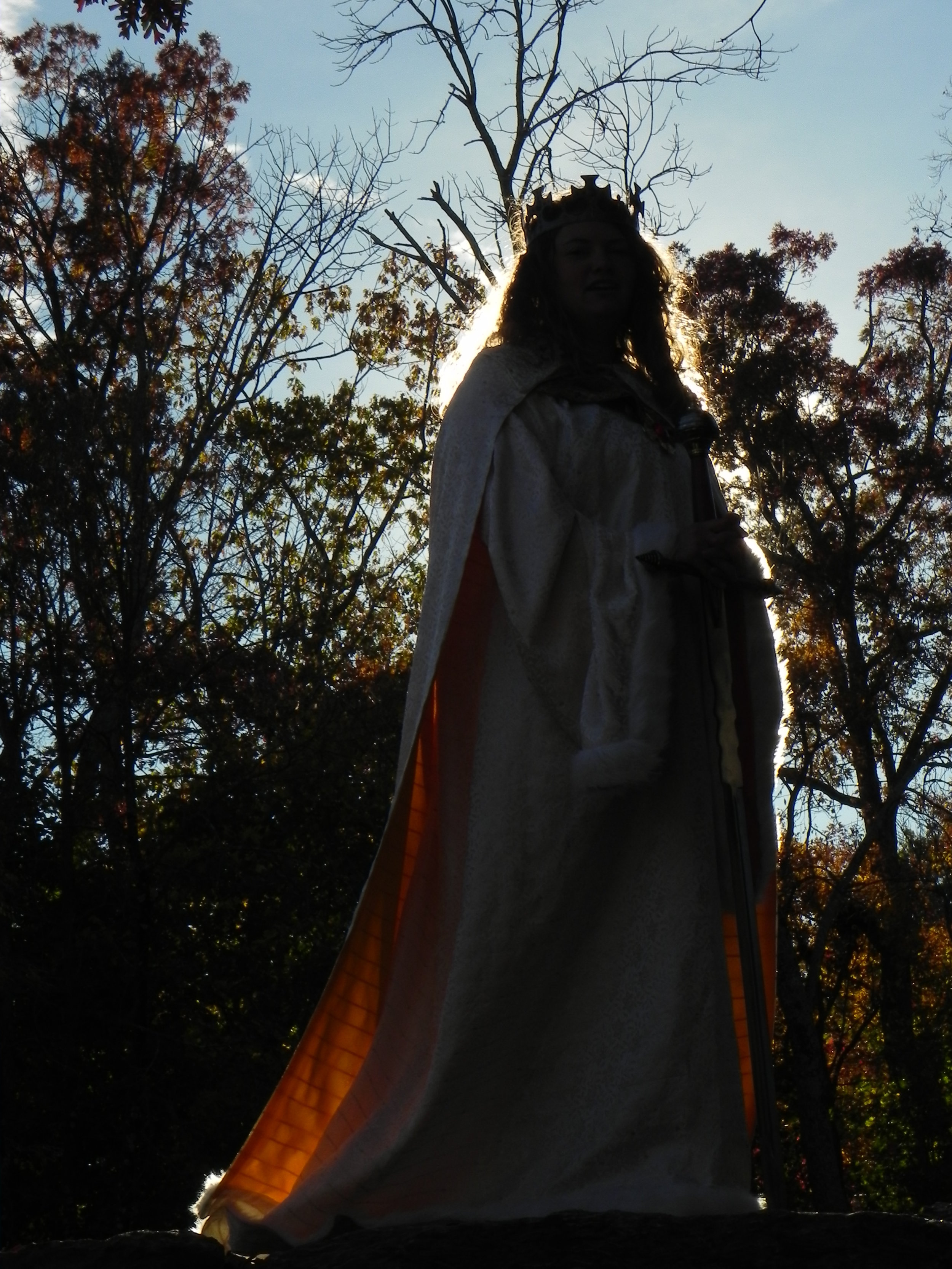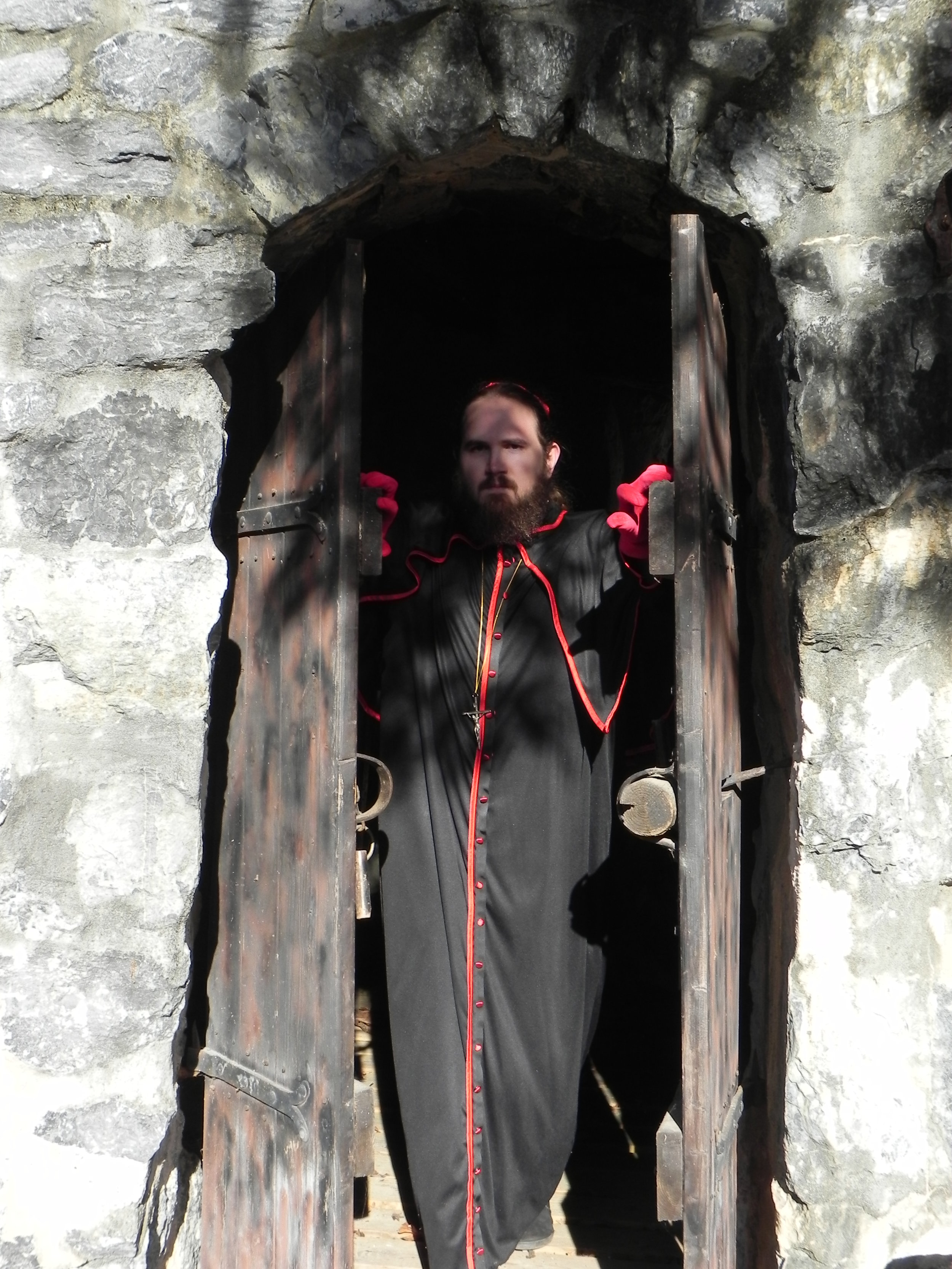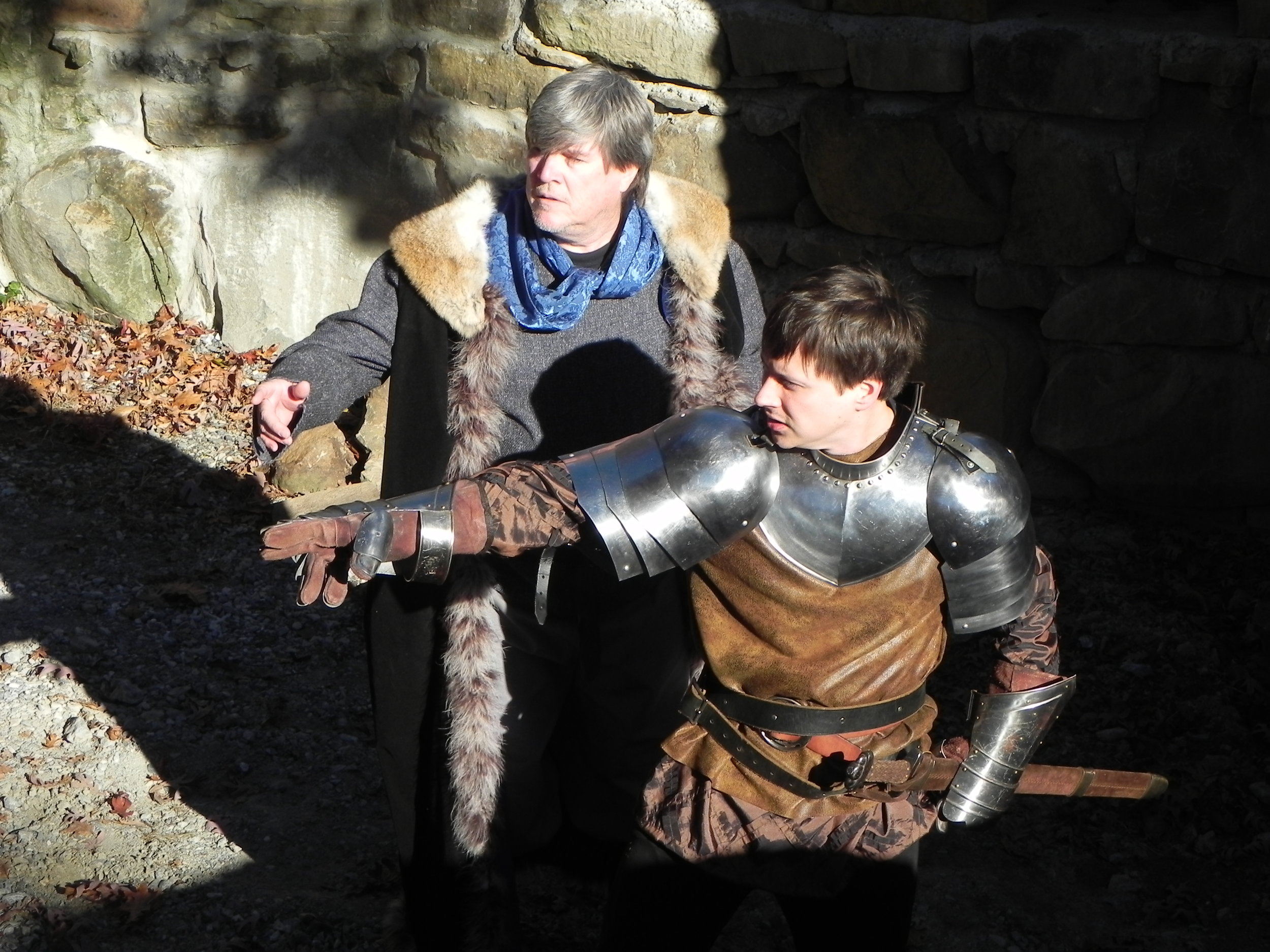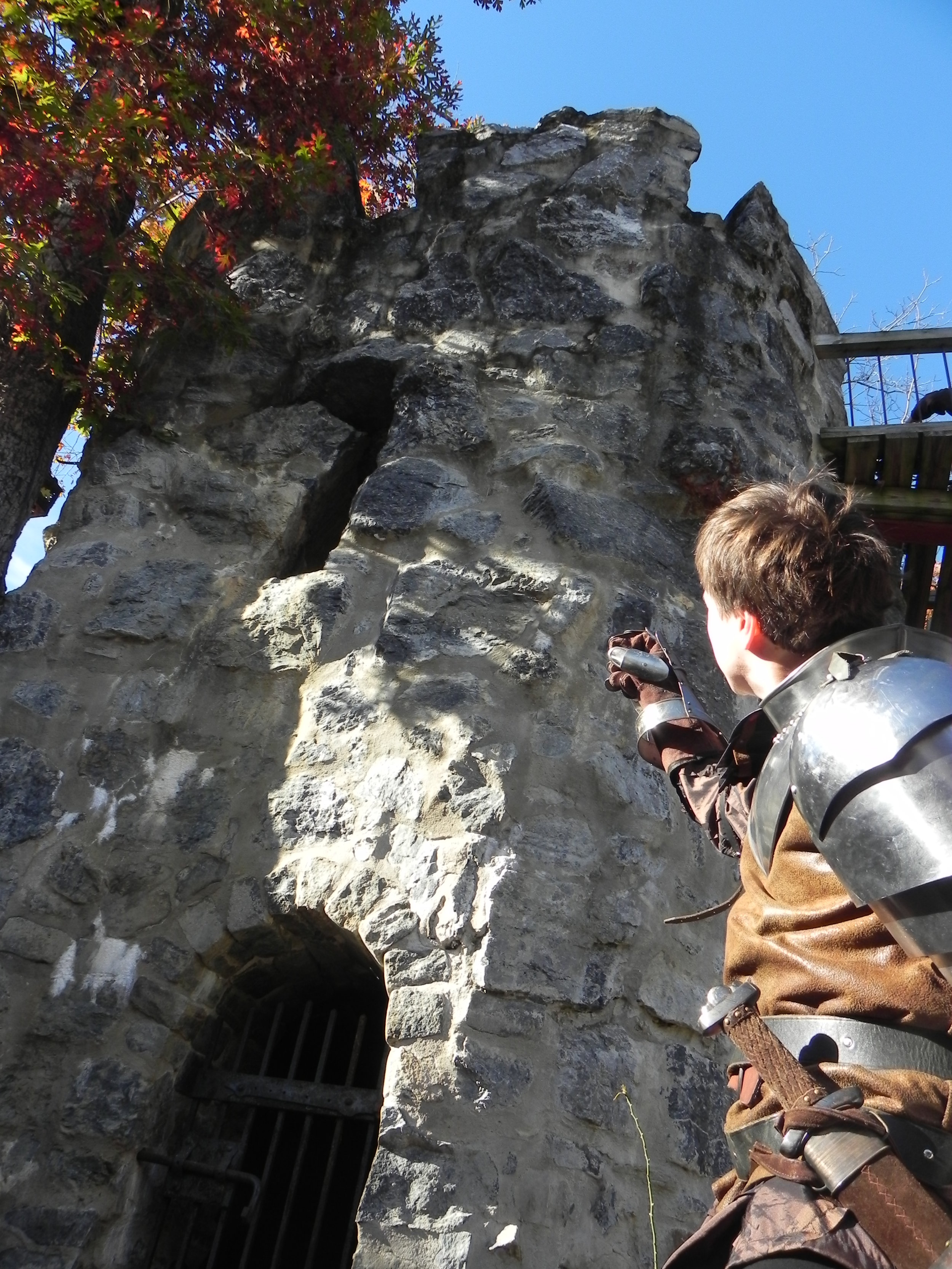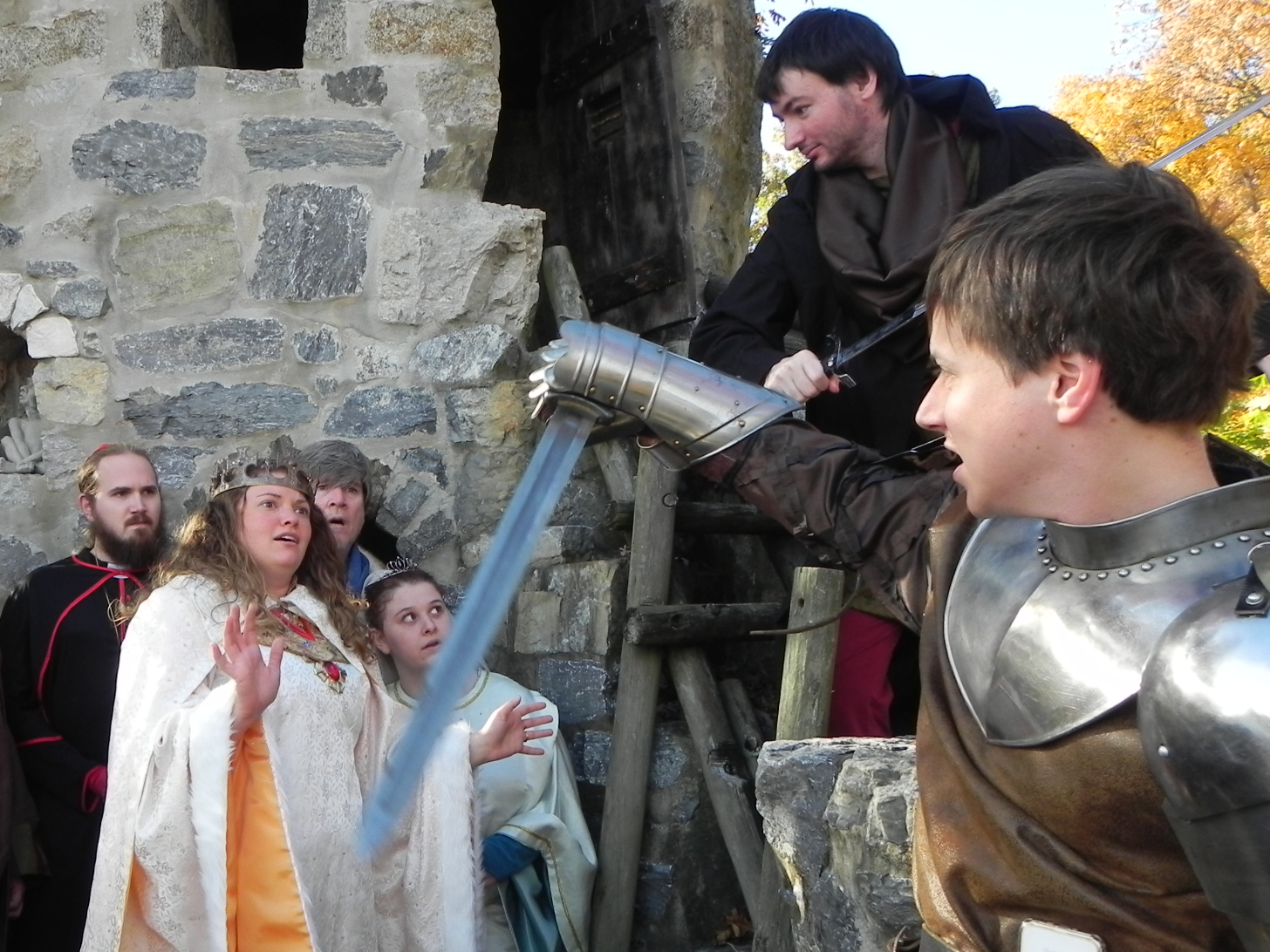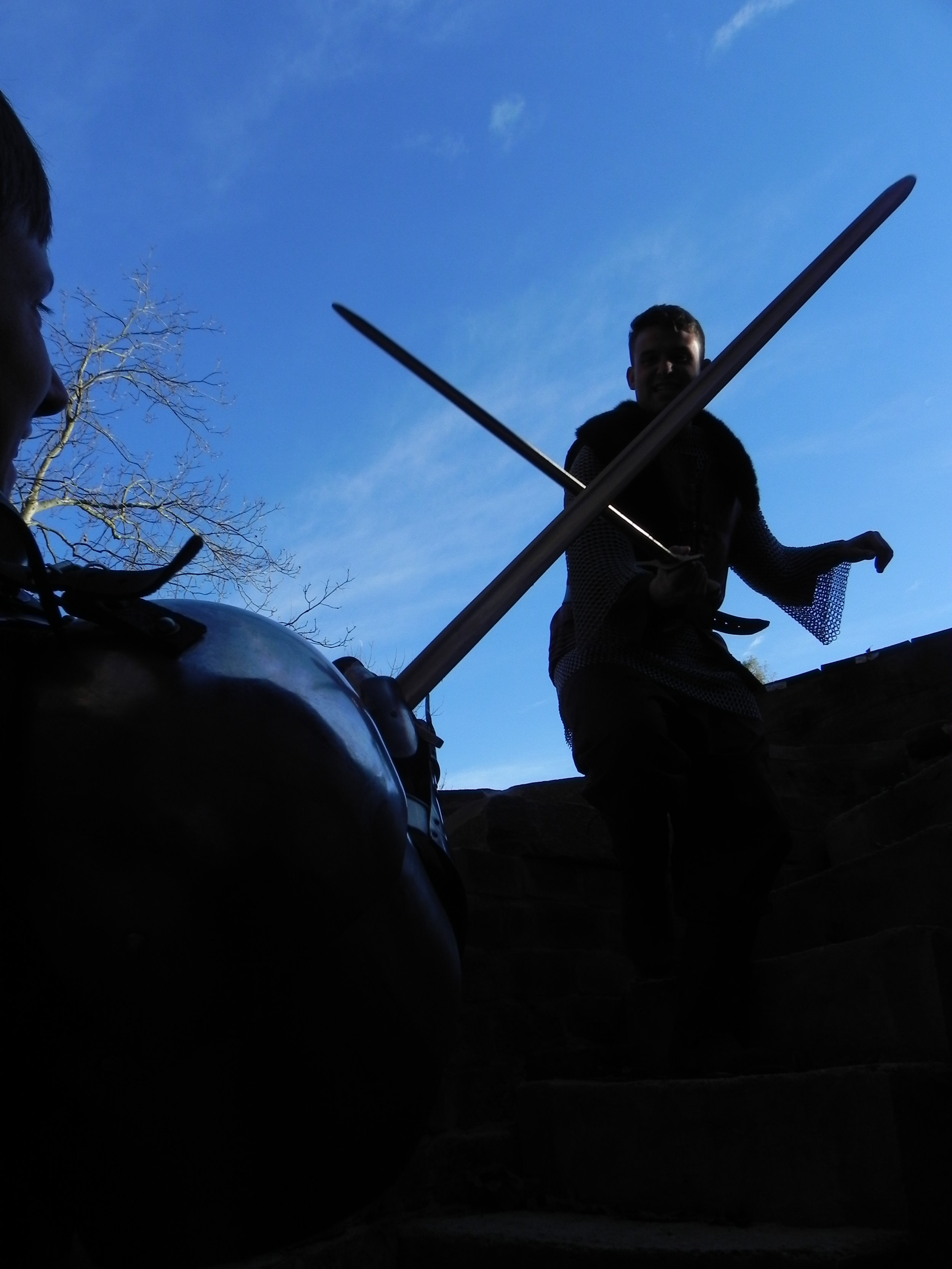THE TRAGEDY OF RICHARD II
DECEMBER 2016, DIRECTED BY RYAN SZWAJA
“Not all the water in the rough rude sea
Can wash the balm from an anointed King.”
Struggling under the shadow of his legendary father, King Richard finds himself faced with an unforeseen danger as his one-time followers begin to close around him. Shakespeare provides us with some of his most poignant poetry as Richard transitions from a divine monarch to a simple man.
Director's Notes
When I was a part of the four-person team assembled to direct OrangeMite's October production of Macbeth last year, the dust of auditions had not long settled and the process of rehearsals begun before I knew I would find myself in the director's chair again. I had long been a fan of Richard II, and when the opportunity for my solo debut arose, I eagerly accepted. I knew the show, had seen it performed (lamentably not live but only on screen), but one none-too-small question remained: how does a modern audience of a small town in Pennsylvania relate to a story about the deposition of a late 14th-century king?
I have spent most of the ensuing year pondering that thought, and the answer is: they don't. The politics of an absolute monarchy, though often present in our fiction, are simply alien to us. The lives of the men and women Shakespeare wrote about have never been ours; they did not have parties and candidates and votes just as we do not have Dukes and Earls and Divine Right. So why perform? Why bother?
The truth is that there is much, much more to this show than a cursory glance may reveal. Richard is more than a monarch: he is a man, mortal and vulnerable to harm. His deposition and transition to the life of a commoner prove to be a poignant cautionary tale even for our modern lives: beware false praise and flatterers ("yes-men," as we may call them), be kind to those beneath you, and above all never take for granted your position in life. Richard's loss of his kingship may well be the loss of a CEO, a coach or a team captain, or even a spouse, if one does not strive at all times to deserve their title.
Watching these actors as they have toiled endlessly to bring these 600-year-old men and women back to life has done nothing but further hammered home this point. I can only hope that it is as readily, near painfully, apparent to you, our audience, as it has been to me.
Ryan Szwaja, Director



